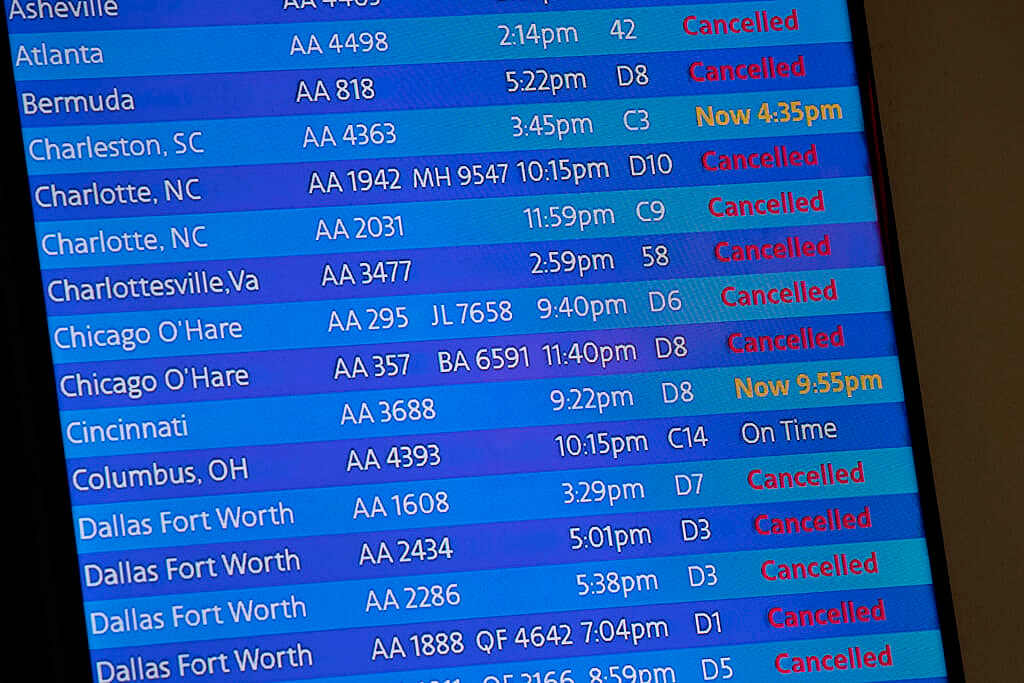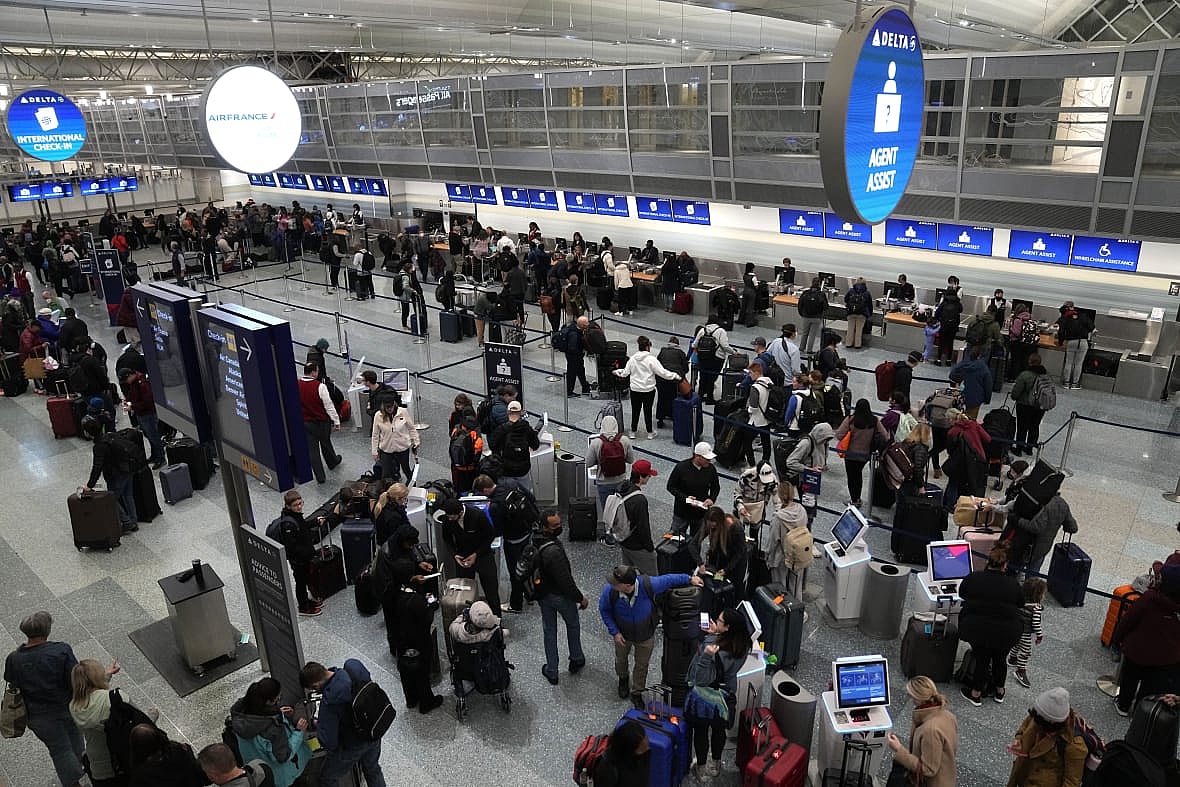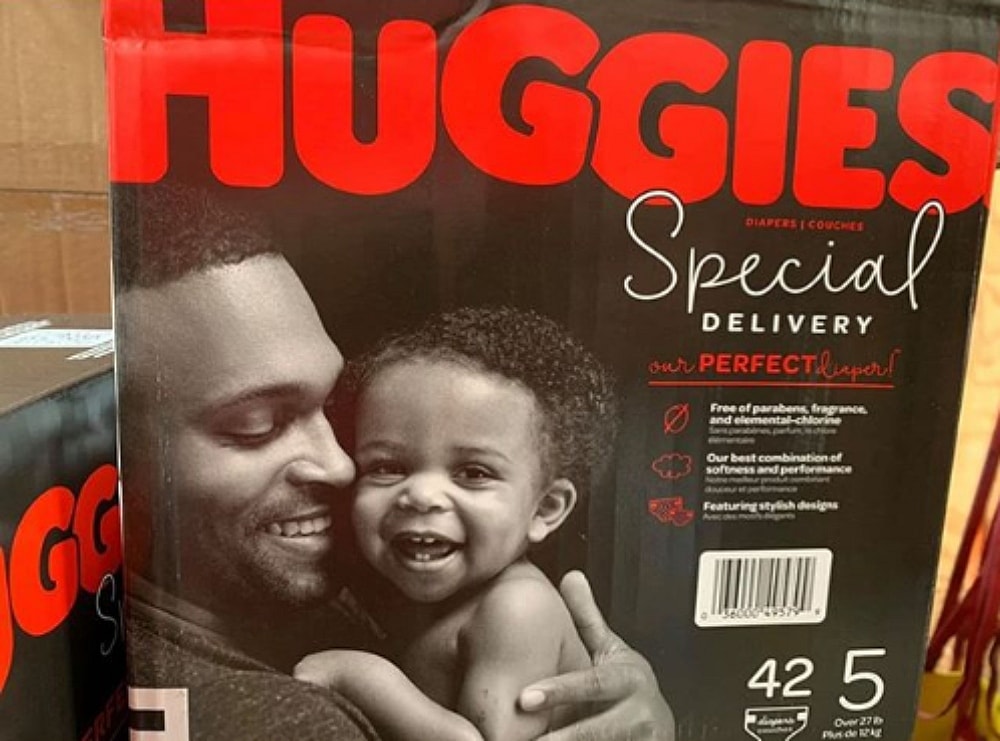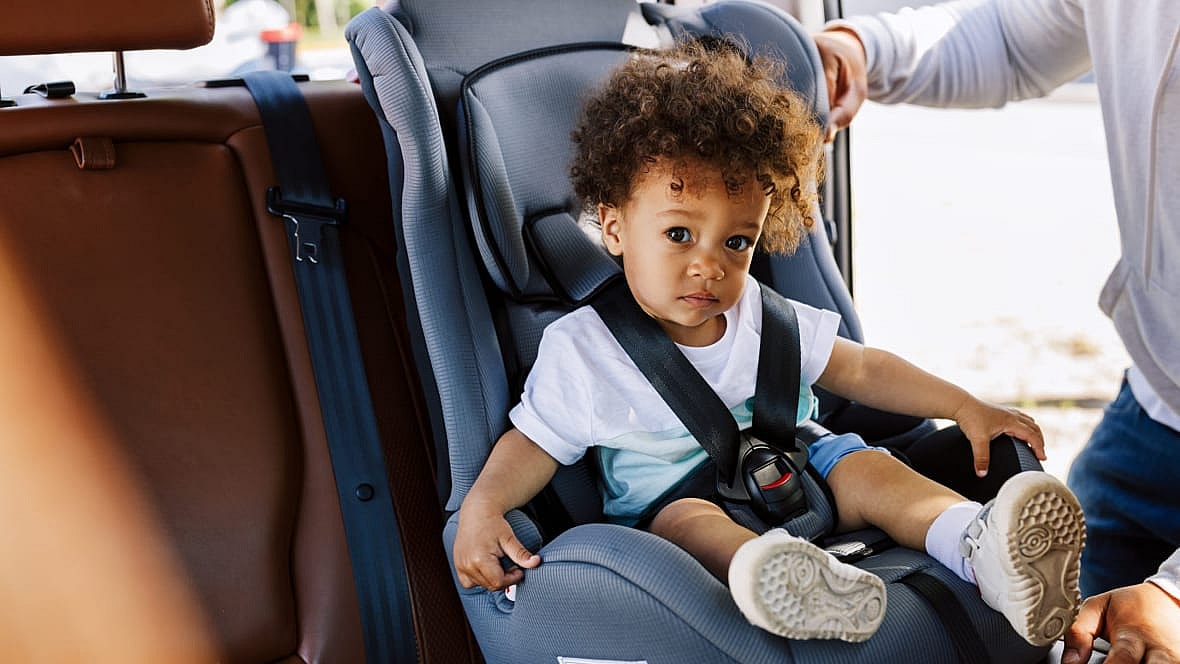Parenting can be a lot of work. It can be stressful. And it can be even harder when you’re traveling. Your kids are in a strange place, they’re experiencing totally new sensations and they’re probably not on their usual schedule.
All that being said, you can travel with kids! Being a parent doesn’t disqualify you from having a life or going to see family or taking vacations. The trick, then, is figuring out how to approach travel with the new wrinkle of parenting making everything more daunting.
So theGrio made a list of do’s and don’ts for traveling with very young kids.
Making your travel plans
Do make sure you research the rules about kids, especially babies, before you buy a ticket. Some airlines require you to purchase a ticket for your child after a certain age, and international flights in particular have rules about airline-compatible car seats. Make sure you know, too, what age your baby is allowed to fly. Different airlines have different age minimums for flight, with some allowing kids as young as two days old.

Don’t plan to travel with a child whose health could be put at risk from being in a small space with so many strangers. Preemie babies or kids with heart or lung problems probably shouldn’t travel until they’re older and stronger, according to the Mayo Clinic. Mayo also notes the risk of catching something while you’re traveling, so it may be best to wait until their immune systems are older and stronger. Ultimately, that’s a discussion to be had between you and your pediatrician, but you should be aware of how flying might impact your child before you book a flight. After all, parenting while traveling is hard enough without adding the complication of a sick child!
Do check your airline’s policy on keeping families seated together. Not every airline guarantees that families will be seated together, though some lawmakers are pushing for airlines to be required to make that guarantee. If you have the funds, consider buying seats that are guaranteed at seat selection. Parenting unruly kids from five rows back is next to impossible, you know!
Don’t demand seat changes from other passengers if your travel plans fall apart. If you get to the airport and find that you and your family have been separated, talk to representatives of the airline first. Most airlines will try to accommodate you. If you still can’t get seats together, it’s OK to ask other passengers if they can switch, but they have the right to turn you down. If you have to ask around, do try to offer upgraded seats, such as those farther up in the plane. Don’t offer, for example, a middle seat in exchange for a window seat.
Parenting at the airport
Do make sure you have all the documentation you need for traveling. If you’re flying internationally, you’ll need a passport for your little ones. You might also need a birth certificate and, if you’re traveling solo without your kids’ other parent, you might need a letter of consent for travel from the other parent.

Don’t leave important things in your checked bags. Yes, you want to check as much of your luggage as you think you can, because it’s hard enough parenting on the go without also lugging around a bunch of suitcases. But you don’t want to pack away important medications or favorite toys or blankies in a bag that will be in the plane’s luggage compartment the whole flight. If there’s a delay or cancellation, you’ll want to have those things on hand.
Do consider wearing your baby in a baby carrier. You’ll have to do a lot of juggling while you’re going through security, getting to your gate, making your connection, grabbing a snack or going to the bathroom. You’ll need your hands free to show your ID, to carry your bags and to wrangle the other kids if you have more than one. You’ll have to take off the carrier if it has metal components in order to go through the metal detector, but it might be worth the moment of hassle to have your hands free the rest of the time.
Don’t go light on packing diapers, formula and breast milk. The TSA allows you to take your breast milk, formula and baby food through security; you just have to go through an extra screening process. Do make sure you pack your baby food in an easily accessible place so you can get through the extra security check faster.

Boarding with your kids
Do split up the boarding process between you and your partner, if you have them with you. One of you can go ahead and put away all the bags. They can also get the older kids settled if you have multiple kids. Then, you can board with the little one. That way, you’re not sitting for too long with a bored baby or toddler while everyone else files onto the plane. You want them to feel trapped and bored for the smallest possible amount of time.
Don’t breastfeed or give your kids snacks during the boarding process. The best time for your kids to eat or drink is actually during takeoff and landing. Their little ears will be feeling the pressure change during those times, and swallowing can help alleviate that sensation. So wait until then to break out the bottle or breast.
Parenting in the sky
Do bring plenty to keep your kids entertained. Obviously, the comfort objects they can’t be without are a must-have, but you might consider bringing along new toys. The novelty might hold their attention longer in a new environment such as an airplane. And do overprepare; you never know when a favorite toy might become a least favorite in a situation like this.
Don’t bring toys that will disrupt the other passengers. It’s one thing to quietly reread “The Cat in the Hat” to your kid if you’re keeping your voice down, but it’s another thing entirely to force everyone else to listen to a toy bus playing “The Wheels on the Bus” for four hours straight. If your kids are old enough for headphones, consider buying a pair in their size so that they can watch movies or listen to music without everyone else on the plane hearing them.

Do encourage your kids to fall asleep on the flight. It might be a good idea to schedule your flight during bedtime or naptime, especially if you’ve got a consistent schedule. It’s so much easier parenting with a sleeping baby than one who is bored and trapped.
Don’t be afraid to ask for help. You can ask a flight attendant to warm up a bottle for you, for example. And if you’re flying with a parent or grandparent who offers to play peek-a-boo with your baby from across the aisle, seize that opportunity! It’s especially important, if you’re flying with your partner, to make sure you’re splitting the parenting duties over the duration of the flight. Do consider taking turns walking up and down the aisle or trading off who is holding which kid if you have more than one.
When others judge your parenting
Do try to be understanding. You’re not going to have a 100% success rate while parenting on the go, and that’s especially true if this is your kids’ first flight. But no one likes to have their flight disrupted. Traveling can be stressful for everyone; give your fellow passengers some grace and don’t expect them to be enthusiastic helpers or even to keep their frustration off their faces.
Don’t let the judgment get to you, though. Sure, other passengers are allowed to be annoyed, but that doesn’t mean they should get in your face or yell at you. You’re trying your best, and that’s all you can do. Sometimes, kids cry. Sometimes, flights are long and hard. Sometimes, you’re at the edge of tears yourself, just begging your baby to stop crying. Just know that it’s OK not to be perfect. As for the haters who might badmouth you or your kid, it might be time to gently remind them that kids are people, too.

We hope that this list helps as you prepare for everything you want to do this summer and beyond. Whatever has got you traveling, we hope that you make the most of it. And hang in there! You’ve got this.

